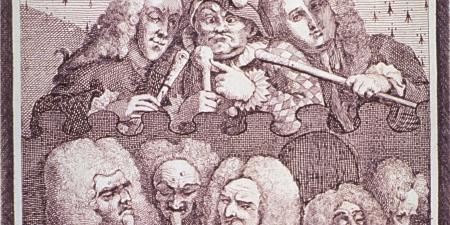The stigma surrounding AIDS has declined substantially in the last 15 years. Many of the myths of the disease have been successfully debunked, and patients with HIV are no longer looked upon as pariahs. The changes have come about through the dedication of those who offered care and compassion when it took some courage to do so. One of those heroes is Dr. Kristen Ries of Salt Lake City, Utah.
Trained in infectious diseases, Dr. Ries has been a full-time faculty member at the University of Utah since 1994. Before then she treated hundreds of patients with HIV. For "an old-fashioned doctor," as she calls herself, leaving her practice To join the University was a tough decision. But she felt it was the right move. "It's time to teach what we do," she told the local newspaper upon her arrival on campus in 1994. "The university wants us to be role models for the young trainees. I take that as a positive"1. In addition to directly mentoring students and residents, Dr. Ries works closely with colleagues in ethics, chairing the ethics committee in her hospital.
When I spoke to Dr. Ries about being profiled here as a role model, she joked about being numbered among the "really important people" that Virtual Mentor has recognized. Despite this self-effacing sense of humor, Dr. Reis's dedication to mentoring students and residents is strictly serious. "I can take care of patients anywhere, but to make a difference in future generations of physicians, that's why I'm here at the medical school," she says. "It's the most important thing."
Dr. Ries graduated from Pennsylvania State University and received her medical degree from Women's Medical College of Pennsylvania. From Philadelphia originally, with a six-year stopover in South Dakota, she thought she could play a bigger role in treating patients with HIV in Utah. She finds the local culture to be much more open about HIV and AIDS than it was when she first arrived. "Nurses with HIV work openly here," she points out.
As a testament to her caring and compassion, Dr. Ries and her physician assistant Maggie Snyder are often thanked in the obituaries of patients for whom they cared. "She's not the typical doctor," Snyder says. "She's a person first, everything else comes second. People are important to her"1.
Dr. Ries has been honored with numerous accolades, designated one of Newsweek's "unsung heroes" in 1988 and named Physician of the Year in 1999 by the Utah Medical Association.
For her commitment to mentoring students, her devotion to patients, and her courage to do what she believed in, "even if it doesn't seem to be what everyone else is doing," we are proud to name Dr. Kristen Ries a role model in medicine.
References
-
Forsberg H. Thank you Dr. Kristen Ries and Maggie: Utah doesn't realize how lucky it is to have AIDS doctor Kristen Ries. Salt Lake City Tribune. Oct. 2, 1994;E1.



